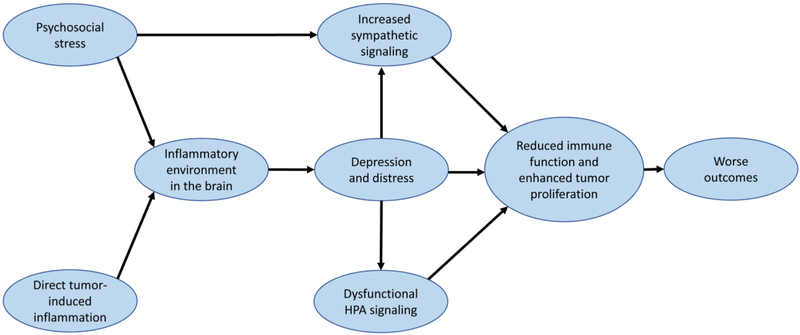Figure 1. Proposed interactions between inflammation, depression, and immune cell dysfunction in subjects with brain cancer.
Brain tumors and psychosocial stress independently contribute to brain inflammation, which provide favorable conditions for the development of depression. High distress levels lead to a cycle of increased sympathetic signaling and dysfunctional HPA signaling. Together, signaling due to the sympathetic and HPA axes decrease immune effector control of tumor cell proliferation, resulting in worse outcomes for patients. Breaking these cycles and addressing increased distress / depression in brain cancer patients may improve survival outcomes.

